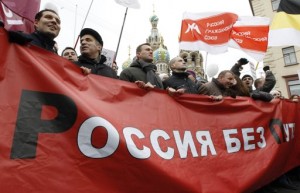Garry Kasparov is a Russian chess grandmaster, widely regarded as the greatest chess player of our time. In 1985, at age 22, Kasparov became the youngest-ever undisputed World Chess Champion.
In 1989, Kasparov defeated the chess computer Deep Thought in both games of a two-game match. In 1996, he won the match against the IBM chess computer Deep Blue [Kasparov: “Intuition versus the brute force of calculation.” CNN. 10 February 2003].

In February 1996, IBM’s chess computer Deep Blue defeated Kasparov in just one game [Deep Blue-Kasparov, 1996, Game 1). Undaunted, Kasparov stuck to his guns and, after gaining three wins, won the match against the silicon monster.
In 2003, Kasparov engaged in another match, “Man vs. Machine” World Championship against Deep Junior. He won a prize of $175,000 and took home the golden trophy.
Afterwards, all Kasparov said was that he had outplayed the machine. [Kasparov vs. Deep Junior in Jan. 2003. ChaseBase.http://www.chasebase.com/newsdetail.aspewsid=599.]
What an incredible triumph of the human brain over the computer, that awe-inspiring mechanical creation of our modern technology!
In March 2005, Kasparov announced he would retire from serious competitive chess, his reason being the lack of personal goals in the chess world. He decided to immerse himself in Russian politics, which he viewed as “heading down the wrong path.”
The concern was not new for the chess master. Already in 1990 Kasparov had taken part in the creation of the Democratic Party in Russia, as well as in the creation of the “Choice of Russia” bloc of parties, and in 1996 he took part in the election campaign of Boris Yeltsin.
In 2005, after Kasparov retired from chess, he turned to politics and created the United Civil Front, a social movement whose main goal is to “work to preserve electoral democracy in Russia” [Russian Chess Legend Kasparov to Establish United Civic Front. MOSNEWS.com, 18 May 2005 http://www.mosnews.com/news/2005/05/18/kasparovfront.shtml].
Kasparov vowed to “restore democracy” to Russia by toppling the Russian Prime Minister Vladimir Putin, of whom he has proven himself an implacable and outspoken critic [“Kasparov leads demonstration against Putin’s rule.” The Independent on Sunday. 10 June 2007].
Kasparov was instrumental in setting up “The Other Russia,” a coalition which opposes Putin’s government. “The Other Russia” has been boycotted by the leaders of Russia’s mainstream opposition parties. Kasparov has argued that these parties are controlled by the Kremlin, despite the fact that they publicly oppose presidential policies.
On numerous occasions, Kasparov helped to organize demonstrations and rallies of protest in Moscow and St. Petersburg against anti-democratic, unlawful practices of the Russian ruling elite.
Kasparov was among the first signatories and one of the architects of the online anti-Putin campaign “Putin Must Go!”, which launched in March of 2010. On Jan. 31, Kasparov hosted a meeting of opposition leaders who organized the mass march of protest on Feb. 4.
Yet Putin is again in the Kremlin. A great mind, a great chess strategist who triumphed over the computer, Kasparov was unable to unseat Putin, an ignorant nobody, the almighty KGB man, who all these years meticulously played his own cunning game, developed his own politically criminal ways and strategies to hang on to power.
And even the brain of a genius was no match against all that brawn.
Lev Navrozov can be reached by e-mail at levnavrozov@gmail.com.


You must be logged in to post a comment Login